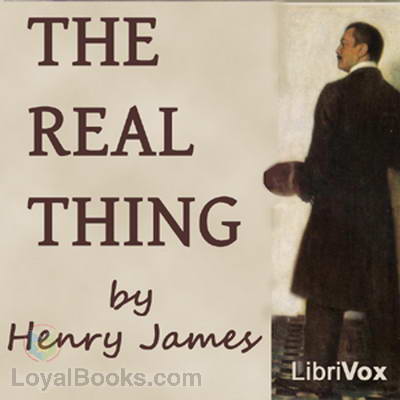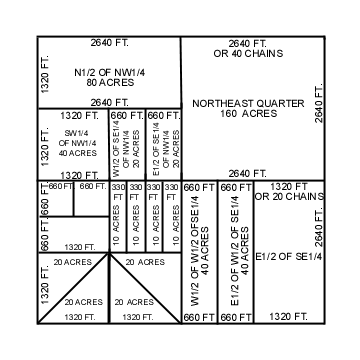$ 0.053 -3.57%
REAL (REAL) Rank 580
REAL is a new Ethereum Smart-Contracts governed ecosystem that applies Blockchain technologies to the enormous Real Estate investment industry, giving access to global investment in Real Estate, lowering barriers to entry, and increasing market liquidity.
| Mkt.Cap | $ 166.42 M | Volume 24H | 7.41 MREAL |
| Market share | 0% | Total Supply | 0.00000000REAL |
| Proof type | Open | $ 0.06 | |
| Low | $ 0.05 | High | $ 0.06 |
Real dictionary definition
To define a horse as "a member of the species equus" would convey no information whatsoever. For this reason, Locking[specify] adds that a definition of a term must not consist of terms which are synonymous with it. This would be a circular definition, a circulus in definiendo. Note, however, that it is acceptable to define two relative terms in respect of each other. Clearly, we cannot define "antecedent" without using the term "consequent", nor conversely.

OTHER WORDS FROM reality
By using this site, you agree to the Terms of Use and Privacy Policy. Wikipedia® is a registered trademark of the Wikimedia Foundation, Inc., a non-profit organization. Early modern philosophers like Locke used the corresponding English terms "nominal essence" and "real essence". Terms with the same pronunciation and spelling but unrelated meanings are called homonyms, while terms with the same spelling and pronunciation and related meanings are called polysemes. Locke and Mill also argued that individuals cannot be defined.
In this view, one might be tempted to say that reality is a "mental construct"; this is not quite accurate, however, since, in Berkeley's view, perceptual ideas are created and coordinated by God. By the 20th century, views similar to Berkeley's were called phenomenalism. Finally, anti-realism became a fashionable term for any view which held that the existence of some object depends upon the mind or cultural artifacts. The view that the so-called external world is really merely a social, or cultural, artifact, called social constructionism, is one variety of anti-realism. Cultural relativism is the view that social issues such as morality are not absolute, but at least partially cultural artifact.
The task in ontology is to describe the most general categories of reality and how they are interrelated. If a philosopher wanted to proffer a positive definition of the concept "reality", it would be done under this heading. As explained above, some philosophers draw a distinction between reality and existence. In fact, many analytic philosophers today tend to avoid the term "real" and "reality" in discussing ontological issues.

Simulated reality
Constructivism and intuitionism are realistic about objects that can be explicitly constructed, but reject the use of the principle of the excluded middle to prove existence by reductio ad absurdum. A correspondence theory of knowledge about what exists claims that "true" knowledge of reality represents accurate correspondence of statements about and images of reality with the actual reality that the statements or images are attempting to represent. For example, the scientific method can verify that a statement is true based on the observable evidence that a thing exists.
Real-life situation
Many humans can point to the Rocky Mountains and say that this mountain range exists, and continues to exist even if no one is observing it or making statements about it. Many of the concepts of science and philosophy are often defined culturally and socially. This idea was elaborated by Thomas Kuhn in his book The Structure of Scientific Revolutions (1962).

In a passage from the Posterior Analytics,[13] he says that the meaning of a made-up name can be known (he gives the example "goat stag"), without knowing what he calls the "essential nature" of the thing that the name would denote (if there were such a thing). This led medieval logicians to distinguish between what they called the quid nominis or the "whatness of the name", and the underlying nature common to all the things it names, which they called the quid rei or "whatness of the thing".[14] The name "hobbit", for example, is perfectly meaningful.
The "Brain in a vat" hypothesis is cast in scientific terms. It supposes that one might be a disembodied brain kept alive in a vat, and fed false sensory signals, by a mad scientist. This is a premise of the film series, Matrix hypothesis.
The first time I heard someone say “I see myself as being a Genuine person”, was a very successful woman I was working for. And damn it she actually was, so that sentence has always stuck to me like a rock. To the point that I’ve recently started an Etsy page for “Genuine Hustler”. Naïve Realism in Contemporary Philosophy Archived at the Wayback Machine, The Function of Conscious Experience.
What is true reality?
True nature of reality is that everything is one and the same thing. Time and space projects one to appear as many, and back to one. Creating a circle.
They’re not likely to advise people to do something they wouldn’t do themselves. After all, genuine people know they’re no better than anyone else so it’s not in their nature to be self-righteous. In a world full of fads, media hype, virtual personas, positive thinkers, and personal brands – where everyone wants what they don’t have, nobody’s content to be who they are, and, more importantly, nobody’s willing to admit to any of that – it’s becoming more and more rare all the time.

Role of the observer in quantum mechanics

The precise meaning of a term given by a mathematical definition is often different than the English definition of the word used,[20] which can lead to confusion, particularly when the meanings are close. For example a set is not exactly the same thing in mathematics and in common language. In some case, the word used can be misleading; for example, a real number has nothing more (or less) real than an imaginary number. Frequently, a definition uses a phrase built with common English words, which has no meaning outside mathematics, such as primitive group or irreducible variety.
- Genuine people truly care about others because they truly care about themselves.
- He believed that it was not a question of physics, but one of philosophy.
- This practice allows them to have a finely tuned understanding of what choices are good and not so good.
- The plural form "people", is often used to refer to an entire nation or ethnic group (as in "a people").

What defines a person?
A person is a being that has certain capacities or attributes such as reason, morality, consciousness or self-consciousness, and being a part of a culturally established form of social relations such as kinship, ownership of property, or legal responsibility.
Origin of reality
Is reality an adjective?
adjective. noting or pertaining to a TV program or film that portrays nonactors interacting or competing with each other in real but contrived situations, allegedly without a script: a popular reality show; reality TV.

Both the dream argument and the simulation hypothesis can be regarded as skeptical hypotheses; however in raising these doubts, just as Descartes noted that his own thinking led him to be convinced of his own existence, the existence of the argument itself is testament to the possibility of its own truth. Another state of mind in which some argue an individual's perceptions have no physical basis in the real world is called psychosis though psychosis may have a physical basis in the real world and explanations vary.
Existence, that something is, has been contrasted with essence, the question of what something is. Since existence without essence seems blank, it associated with nothingness by philosophers such as Hegel.
What is real life situation?
The real-life situation should be concrete and easily identifiable. It cannot be a broad topic (euthanasia, vegetarianism) but a specific event, experience or contemporary issue. They can be taken from your own experiences, interests or other subjects that you study.
The block universe theory, also known as Eternalism, holds that past, present and future are all real, but the passage of time is an illusion. It is often said to have a scientific basis in relativity. As well as differing about the reality of time as a whole, metaphysical theories of time can differ in their ascriptions of reality to the past, present and future separately. M. E. McTaggart in The Unreality of Time have argued that time is an illusion. Kant, in the Critique of Pure Reason, described time as an a priori notion that, together with other a priori notions such as space, allows us to comprehend sense experience.
They’re all a function of how we perceive each other through our own subjective lenses. To figure out the true nature of reality, we are limited by the tools and apparatus available to us. This includes our sensory experience and our ability to reason or imagine.
Nihilism represents an extremely negative view of being, the absolute a positive one. The view that there is a reality independent of any beliefs, perceptions, etc., is called realism. More specifically, philosophers are given to speaking about "realism about" this and that, such as realism about universals or realism about the external world. Generally, where one can identify any class of object, the existence or essential characteristics of which is said not to depend on perceptions, beliefs, language, or any other human artifact, one can speak of "realism about" that object.

Enumerative definitions are only possible for finite sets (and in fact only practical for relatively small sets). Genuine people have as many bad days as their less-than-sincere brethren. Yet they also have a deep-seated happiness that comes from staying true to themselves. This happiness tends to escape from them in the form of yucking it up with friends, co-workers, and anybody else who wants to join in the joy.
While this form of reality might be common to others as well, it could at times also be so unique to oneself as to never be experienced or agreed upon by anyone else. Much of the kind of experience deemed spiritual occurs on this level of reality. A traditional realist position in ontology is that time and space have existence apart from the human mind. Idealists deny or doubt the existence of objects independent of the mind.

3 thoughts on “The Importance of Proper Definition”
The area between the two extremes, where both the real and the virtual are mixed, is the so-called Mixed reality. Second life and MMORPGs such as World of Warcraft are examples of artificial environments or virtual worlds (falling some way short of full virtual reality) in cyberspace. Local realism is a significant feature of classical mechanics, of general relativity, and of electrodynamics; but quantum mechanics has shown that quantum entanglement is possible. Different interpretations of quantum mechanics violate different parts of local realism and/or counterfactual definiteness. Scientific realism is, at the most general level, the view that the world described by science (perhaps ideal science) is the real world, as it is, independent of what we might take it to be.
Is reality a simulation?
Simulated reality is the hypothesis that reality could be simulated—for example by quantum computer simulation—to a degree indistinguishable from "true" reality. It could contain conscious minds which may or may not be fully aware that they are living inside a simulation.
Saul Kripke pointed to difficulties with this approach, especially in relation to modality, in his book Naming and Necessity.

What is the importance of words?
In a sentence in one of our Guides, real world was being used as an adjective, in this case, “real-world experience.” I removed the hyphen and space between real and world, making it one word.







